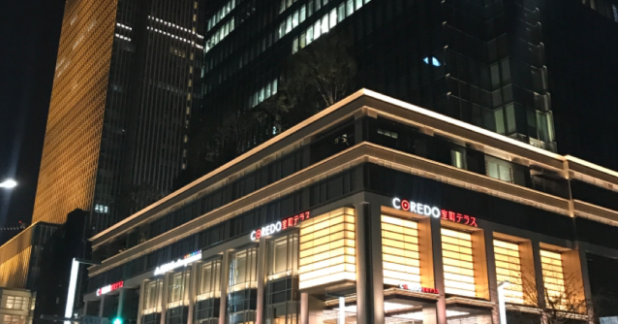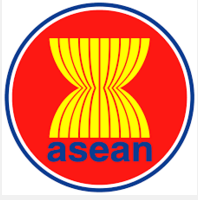No growth for a company without a philosophy!

No growth for a company without a philosophy!
I have been involved in franchising for 30 years.
That's a really long time.
My involvement with franchises began with San-Marque, which at the time had only two stores in Okayama,
At that time, there were only two stores in Okayama.
Nowadays, "St. Mark's Cafe" is a well-known brand, but at that time, it was called "Bakery Restaurant St. Mark's".
It was an ultra-high investment franchise with an initial investment of 200 million yen to build a new 300㎡ building on an 1800㎡ site.
I was in charge of supporting the development of the franchise. That was our first involvement with a franchise.
The development know-how developed here was utilized in the subsequent franchise development of Gulliver, Gyukaku, Maido Ookini Shokudo, Gin-no-Sara, Gruff Partner, and many others.
→What does it mean to be a franchisee developer?
I have experience in franchise development, but I also have experience in becoming a franchisee of these franchises through the company I founded myself in 1996.
→What does it mean to join a franchise and become a franchisee?
In Gyukaku, the total headquarters was very small at the time, so I also experienced the franchise headquarters business by purchasing the franchise headquarters rights (master rights for the area) for a wide area (Aomori to Okinawa), which was almost 80% of the area outside of Tokyo and the three prefectures.
At that time, the general headquarters handled only Tokyo and three prefectures, so operations that should have been handled by the general headquarters, such as product purchasing, menus, logistics, and location development, were built from scratch at the area headquarters.
That was a great learning experience.
→What does it mean to establish a franchise headquarters?
Let me turn to a different topic,
Recently, I ran into Mr. Yoshida, the owner of YKK, at a cafe run by YKK.
He is a very friendly person and we talked for more than an hour.
Since its founding, YKK's management philosophy has been "the cycle of goodness.
Although it is a privately owned company, YKK has the world's largest share of the fastener market.
The company has expanded its business to window sashes, and the consolidated group sales of 119 companies in 70 countries around the world amount to about 800 billion yen.
The company is eyeing further business expansion.
He also has a 10 km x 20 km (how many acres?) coffee plantation in Brazil. He also has a coffee plantation in Brazil that is 10 km by 20 km (how many acres?) in size.
It is said to be larger than the inside of the Yamanote Line.
It was very interesting to hear why he chose a coffee plantation.
The management philosophy is very simple and easy to understand: "The cycle of goodness.
This is exactly what a franchise is!
A person or company with no knowledge of the industry (franchisee) starts up a business by receiving know-how from a company with expertise in the field (headquarters). In return, the headquarter receives a solid fee for its know-how and builds a stronger headquarter for the franchisees.
It is truly a win-win-win cycle, the "cycle of goodness" itself.
Recently, when I have met with franchisees, I have noticed that successful franchise companies and owners have many things in common.
Unlike the pattern of creating a business from scratch by oneself, there are many advantages to joining a franchise.
The biggest advantage is that you can buy the successes and failures that the headquarters has experienced in the past, both those experiences and time.
Franchisees may sign up for a franchise because it is currently popular because it is booming, because there are lines of people waiting in line, because it has been featured in the media, or because it is operated by a major, well-known company.
Franchisees who sign up for these reasons are still very inexperienced and inexperienced in their viewpoints.
Essentially, the merit of joining a franchise is to buy success, failure, and time, as I mentioned earlier.
Then there is no point in becoming a franchisee unless you thoroughly use the headquarters, the SV in charge, the department in charge, and the president.
As soon as you become a member, you are on your own.
I want to increase the number of products and broaden the customer base because my area is like this," he said.
I understand that, but you can rearrange your own store much, much later.
First of all, you need to thoroughly use the head office.
This is the most important thing.
I don't know of any chain that has succeeded with line sense in the past.
If they abide by certain arrangements, everything else is free.
The signage, the products, everything is free. You can offer whatever you want.
You don't even have to apply to headquarters.
There is no way this can be successful.
The head office is simply a wholesaler of products.
Recently, there are many headquarters that want to develop under a license.
Perhaps because they lack the confidence to franchise, or perhaps because they don't want to take on the responsibility.
Needless to say, it is better not to franchise with such headquarters.
Once you become a franchisee, you must thoroughly absorb all the know-how of the headquarter and suck it all up.
Absorb all their successes and failures.
The mere fact that you will not have to experience the failure of the headquarters in the past is a big advantage.
There are people and companies that join a franchise but try to do things independently with their own know-how.
Such people should not join a franchise from the beginning and create their own business model from scratch.
This is a job that really requires a sense of style and is not easily done by amateurs, though,
It is said that the probability of a restaurant remaining in business three years after starting its own business is less than half that of a franchise restaurant. That makes sense.
Recently, I went to Okinawa.
This was a visit to a franchise company when I was managing the area headquarters of Gyukaku.
They have been a franchisee for more than 15 years and currently operate 12 restaurants in Okinawa.
All Gyukaku restaurants in the 30-square-meter class have monthly sales in excess of 10 million yen, with the highest restaurant having a monthly sales volume of 16 million yen.
Moreover, business hours are from 5:00 p.m. to 24:00 p.m.
Sales are even higher than during Gyukaku's heyday.
The president was humble enough to say that inbound sales had a large impact, but I know the essence of this company's success.
I visited this company many times as a representative of the area headquarters at the time, and I have visited many times since leaving the headquarters management.
I first fell in love with a Gyukaku restaurant in Tokyo back in the day and was invited to become a member of this company.
Even now, the Gyukaku restaurants of this company are just the same as they were back then.
Recently, many Gyukaku restaurants have been turned into family restaurants.
This means that the menu structure must also be like that of a family restaurant.
It's like a slightly more fashionable version of the old suburban family Yakiniku restaurants.
This Okinawan company has kept the same store interior and business concept as in the past. Old wood, Japanese paper, and indirect lighting with a sense of coziness.
They decided not to do all-you-can-eat or buffet restaurants back then.
(This is something that I agreed with even though I was not in management at the time).
He has a very strong core of management.
Okinawa is isolated from the mainland, so it was probably easier for them to create a brand image on their own.
I was very happy to see that they are still protecting the Gyukaku brand.
It takes a lot of effort and time to create a brand, but it can be destroyed in an instant. It is easy to destroy.
I think it is about time for a new concept, a new Yakiniku restaurant that fits the market like Gyukaku did when it broke through.
There have not been that many completely new types of businesses at any given time.
In many cases, new businesses are created by mashing up existing businesses.
It is our job to find such new types of businesses or to franchise them.
In addition to the strength of the business, the management philosophy of the headquarter manager is also very important.
The connection between franchisees with a core (heart) and headquarters management with a core (heart).
A company without a philosophy cannot grow!
We would like to create such a connection in Japan and around the world.
We look forward to working with you!
Assentia Holdings,Inc.
Akira Tsuchiya


